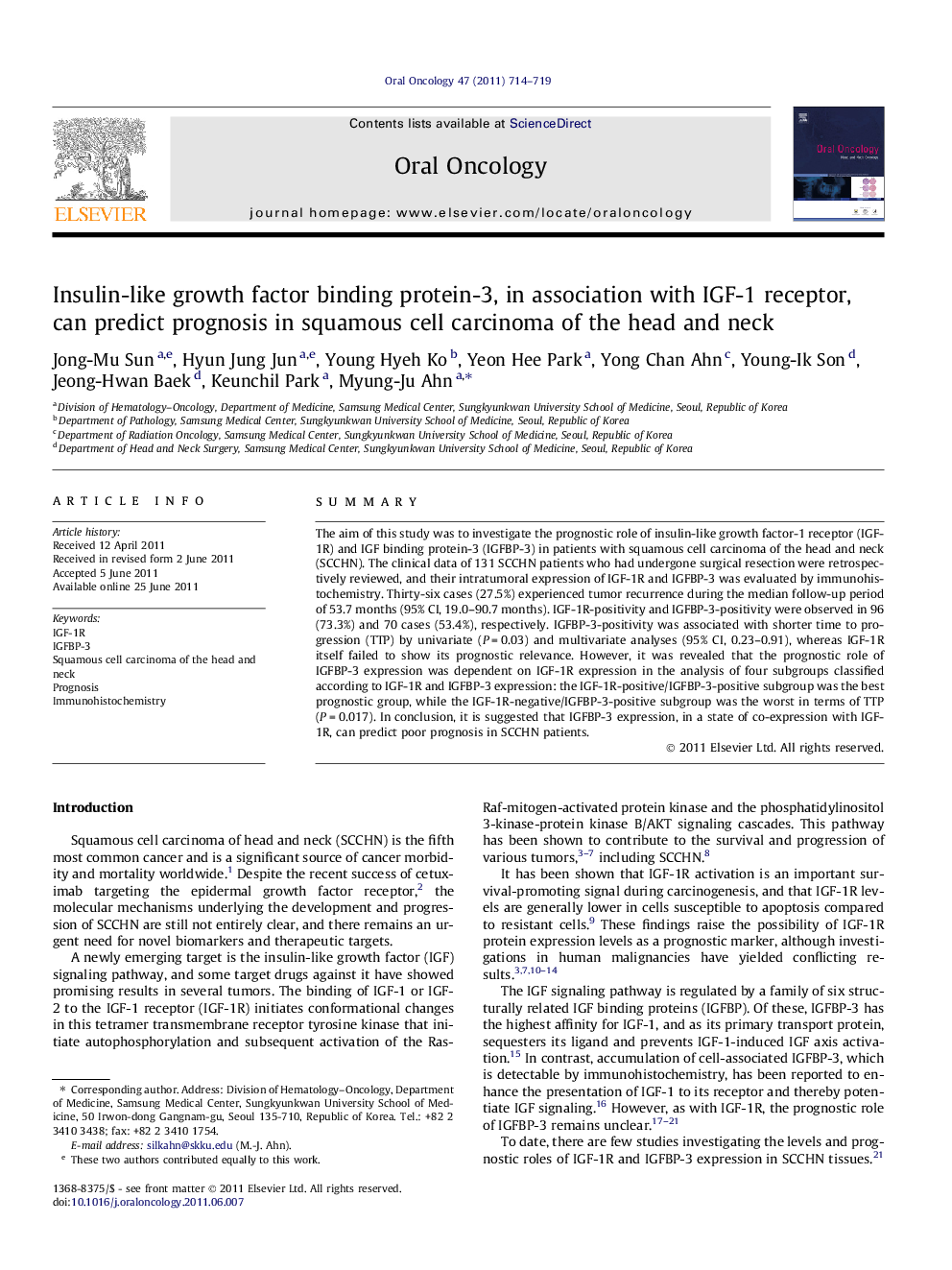| Article ID | Journal | Published Year | Pages | File Type |
|---|---|---|---|---|
| 6055280 | Oral Oncology | 2011 | 6 Pages |
SummaryThe aim of this study was to investigate the prognostic role of insulin-like growth factor-1 receptor (IGF-1R) and IGF binding protein-3 (IGFBP-3) in patients with squamous cell carcinoma of the head and neck (SCCHN). The clinical data of 131 SCCHN patients who had undergone surgical resection were retrospectively reviewed, and their intratumoral expression of IGF-1R and IGFBP-3 was evaluated by immunohistochemistry. Thirty-six cases (27.5%) experienced tumor recurrence during the median follow-up period of 53.7Â months (95% CI, 19.0-90.7Â months). IGF-1R-positivity and IGFBP-3-positivity were observed in 96 (73.3%) and 70 cases (53.4%), respectively. IGFBP-3-positivity was associated with shorter time to progression (TTP) by univariate (PÂ =Â 0.03) and multivariate analyses (95% CI, 0.23-0.91), whereas IGF-1R itself failed to show its prognostic relevance. However, it was revealed that the prognostic role of IGFBP-3 expression was dependent on IGF-1R expression in the analysis of four subgroups classified according to IGF-1R and IGFBP-3 expression: the IGF-1R-positive/IGFBP-3-positive subgroup was the best prognostic group, while the IGF-1R-negative/IGFBP-3-positive subgroup was the worst in terms of TTP (PÂ =Â 0.017). In conclusion, it is suggested that IGFBP-3 expression, in a state of co-expression with IGF-1R, can predict poor prognosis in SCCHN patients.
